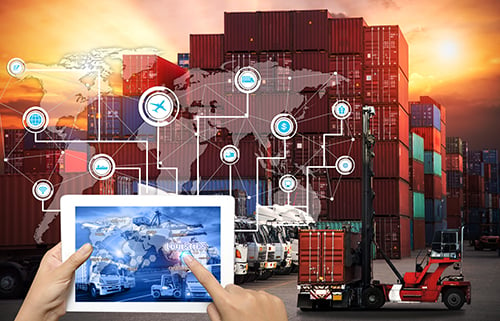
Chris Connor is president & CEO of the American Association of Port Authorities, the unified voice of the seaport industry in the Americas, which represents more than 130 public port authorities in the United States, Canada, the Caribbean, and Latin America.
As the former global president & CEO of Wallenius Wilhelmsen Logistics AS (WWL), one of the world’s largest ocean car carriers, and vehicle logistics groups, Connor guided the company through a period of significant transformation in its core ocean transport business, while driving rapid growth in the vehicle logistics arena.
Connor has over 38 years of experience in international shipping and logistics. His reputation as an industry leader and globally recognized expert in deep-sea ocean transport and land-based logistics is the foundation of “A Conversation with Chris Connor,” moderated by ICL Systems’ Tom Swennes, at the upcoming AIAG Supply Chain + International Trade Summit on September 9, 2021. Connor and Swennes will discuss what’s on the horizon for U.S. ports in relation to strategic development, alleviating congestion, labor, and the overall strategy of the American Association of Port Authorities.
AIAG: What is the biggest challenge the supply chain is facing right now?
 Connor: Well, the 800-lb gorilla in the room is the congestion of the freight network. Ports are essential to the supply chain. If you can’t get the technology you need to build your cars, that has a big impact on the industry.
Connor: Well, the 800-lb gorilla in the room is the congestion of the freight network. Ports are essential to the supply chain. If you can’t get the technology you need to build your cars, that has a big impact on the industry.
AIAG: This congestion is a side effect of the pandemic?
Connor: Yes, and this pandemic-inspired supply chain disruption is still in place. We’re still navigating around it. It has permanently changed the supply chain and exposed weaknesses in the freight mobility system. We need a robust freight network with predictability.
AIAG: What are some of the weaknesses in our supply chain?
Connor: Our infrastructure is not resilient enough to scale up 25% over previous highs. We don’t have the physical or technology footprint. Asia ships cargo out 365/24/7, and they can unload ships as soon as they arrive. But in the U.S., we have a different operating model.
When you ship from Asia to the United States, it’s like driving on an 8-lane, highspeed freeway that suddenly turns into a 2-lane road with everyone going 25 mph. We need a new operating model between ports, terminals, haul-away, and rail. We need a night shift. We need trucks and trains that can load up and move cargo during the night like Asia does. The pandemic exposed shortcomings that have been there a long time.
AIAG: What topics will you discuss onstage at the AIAG Supply Chain + International Trade Summit?
Connor: I hope that we’ll be talking comprehensively about the federal infrastructure package- how much is going to ports, and what that means for the short- and long-term. The reality is that highways, schools, bridges, hospitals — the bulk of the money will go there. Ports will only get a little.
Historically, the government has underinvested in our ports. Ports are only in the news when there’s a crisis. Most people don’t appreciate the economic impact of ports. Ports contribute over $5 trillion to the GDP. That’s 26% of total USA GDP. We will get something from the infrastructure bill to help move us forward, and while it won’t be enough, it will definitely be a step in the right direction.
We will talk about how to make the supply chain more efficient. When things get efficient, the auto industry will get its’ raw materials and componentry in a more predictable way. We must focus on this because costs are up 5–6 times what they were. When the U.S. improves its’ freight mobility network, we will become more competitive globally, and it will help level the playing field.
To hear more from Chris Connor and numerous other supply chain thought leaders, register now for the 2021 AIAG Supply Chain + International Trade Summit.


